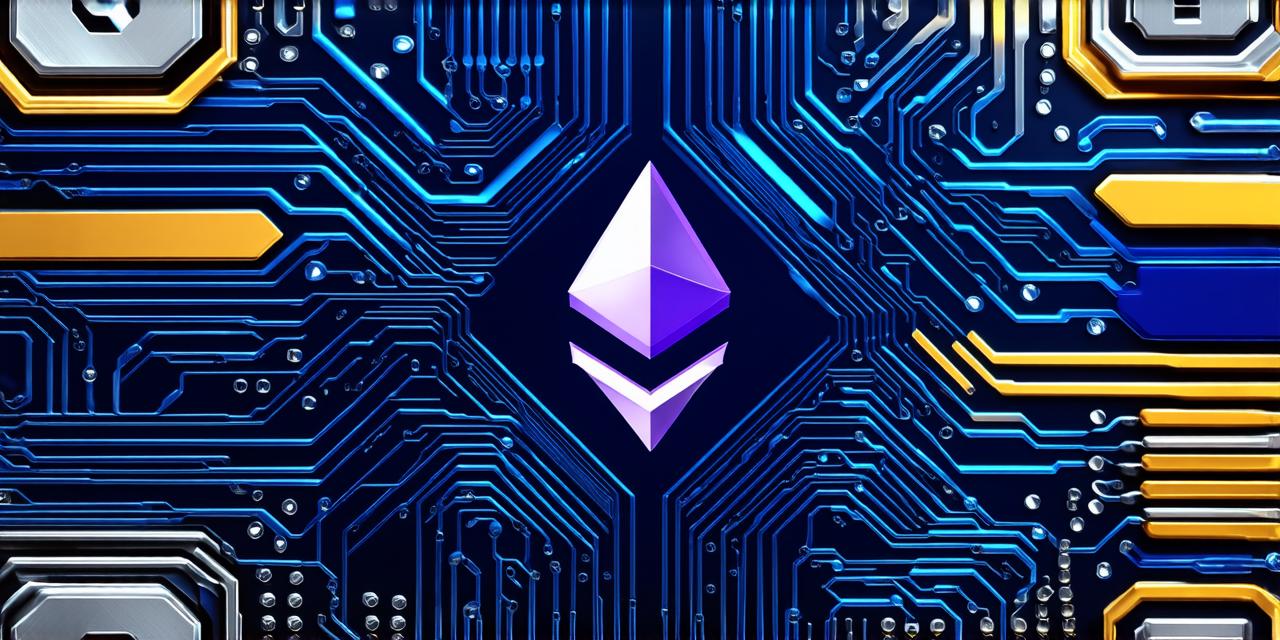If you’re a blockchain developer looking to stay up-to-date with the latest developments in the field, EVM (Ethereum Virtual Machine) is definitely worth learning about. EVM is a programming language and runtime environment that enables developers to build decentralized applications (DApps) on the Ethereum blockchain.

EVM Meaning: What Does It Stand for?
EVM stands for “Ethereum Virtual Machine,” which is a programming language and runtime environment used to build DApps on the Ethereum blockchain. The EVM allows developers to write code that can be executed on the Ethereum network, creating a new way to interact with and utilize this powerful technology.
EVM Functionality: What Can It Do?
The EVM is designed to execute smart contracts, which are self-executing programs that run exactly as programmed without any possibility of downtime, censorship, fraud or third-party interference. Smart contracts can be used to automate a wide range of processes, such as buying and selling assets, lending and borrowing money, and even voting.
EVM also allows developers to create decentralized applications (DApps) that can interact with the Ethereum blockchain. DApps are web-based applications that run on the blockchain and don’t rely on any centralized authority or intermediary. They can be used for a wide range of purposes, such as social media, gaming, supply chain management, and more.
How Does EVM Work?
EVM works by executing code written in the Solidity programming language on the Ethereum blockchain. Solidity is a high-level, statically typed programming language that was specifically designed for building smart contracts on the Ethereum network.
EVM runs on a virtual machine called the EVM bytecode interpreter. This interpreter takes the code written in Solidity and executes it on the Ethereum blockchain. The resulting data is stored on the blockchain, creating a permanent record of all transactions that occur on the network.
One of the key features of EVM is its ability to execute smart contracts securely and efficiently. Smart contracts are self-executing programs that run exactly as programmed without any possibility of downtime, censorship, fraud or third-party interference. This makes them ideal for a wide range of applications, including supply chain management, voting systems, and financial services.
EVM also provides a platform for developers to build decentralized finance (DeFi) applications. DeFi refers to a set of financial applications that run on the Ethereum blockchain and enable users to access financial services without the need for intermediaries such as banks or brokers.
Real-Life Examples of EVM in Action
There are many real-life examples of EVM in action, including:
1. Decentralized Exchanges (DEXs)
DEXs are a type of cryptocurrency exchange that runs on the Ethereum blockchain and allows users to trade cryptocurrencies without the need for intermediaries such as centralized exchanges or brokers. Examples of DEXs include Uniswap, Sushiswap, and Curve.
2. Supply Chain Management
EVM can be used to build smart contracts that automate supply chain management processes, such as tracking the movement of goods from one location to another and ensuring compliance with regulations and standards.
3. Voting Systems
EVM can be used to build secure and transparent voting systems that allow people to vote without the need for intermediaries such as governments or political parties.
4. Prediction Markets
EVM can be used to build prediction markets, which are decentralized platforms that allow users to make predictions about future events and bet on those predictions.
5. Gaming
EVM can be used to build games that are hosted on the Ethereum blockchain and allow players to interact with each other in a secure and transparent way. Examples of gaming platforms built on EVM include Enjin, My Neighbor Alice, and CryptoKitties.
FAQs
1. What is EVM?
EVM stands for “Ethereum Virtual Machine,” which is a programming language and runtime environment used to build decentralized applications (DApps) on the Ethereum blockchain.
2. How does EVM work?
EVM runs on a virtual machine called the EVM bytecode interpreter, which takes code written in Solidity and executes it on the Ethereum blockchain.
3. What is the difference between EVM and smart contracts?
EVM is a runtime environment that allows developers to execute smart contracts, which are self-executing programs that run exactly as programmed without any possibility of downtime, censorship, fraud or third-party interference.
4. Can I build DApps on EVM?
Yes, EVM provides a platform for developers to build decentralized applications (DApps) that can interact with the Ethereum blockchain.
5. What is DeFi?
DeFi refers to a set of financial applications that run on the Ethereum blockchain and enable users to access financial services without the need for intermediaries such as banks or brokers.
Summary
EVM is a powerful tool for developers looking to build decentralized applications (DApps) on the Ethereum blockchain. With its ability to execute smart contracts securely and efficiently, EVM provides a platform for a wide range of applications, including supply chain management, voting systems, financial services, gaming, and more. As EVM continues to evolve and improve, we can expect to see even more innovative uses of this powerful technology in the future.
